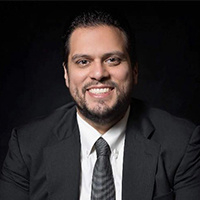Fort Polk Estate Lawyer, Louisiana
Sponsored Law Firm
-
 x
x

Click For More Info:
-
Wes Bailey, Attorney At Law, LLC
303 E Texas St Leesville, LA 71446» view mapEstate Law You Deserve A Fair Trial
Nobody relishes the idea of hiring a lawyer. However, when you have a legal problem, you want to make sure the lawyer you hire is capable of achieving your goals.
800-948-5630
Wesley Ryan Bailey
✓ VERIFIEDDivorce & Family Law, DUI-DWI, Real Estate, Wills & Probate, Adoption
Wesley Bailey is a practicing lawyer in the state of Louisiana specializing in Divorce & Family Law. More about Wes Bailey: Managing Attorney for so... (more)
David R Lestage
Estate Planning, Family Law, Insurance, Business Organization
Status: In Good Standing
F Steve Landreneau
Real Estate, Trusts, Estate Planning, Insurance, Business Organization
Status: In Good Standing
Henry O Lestage
Wills & Probate, Employment, Family Law, Insurance, Personal Injury
Status: In Good Standing Licensed: 66 Years
Gwenda R. Lamb
Power of Attorney, Real Estate, Wills & Probate, Trusts
Status: In Good Standing Licensed: 36 Years
Gary B. Tillman
Wills, Business & Trade, Bankruptcy, Personal Injury
Status: In Good Standing Licensed: 36 Years
John Joseph Zachary
Commercial Real Estate, Wills, Business & Trade, Administrative Law
Status: In Good Standing Licensed: 28 Years
 Wesley Bailey Leesville, LA
Wesley Bailey Leesville, LA Practice AreasExpertise
Practice AreasExpertise

